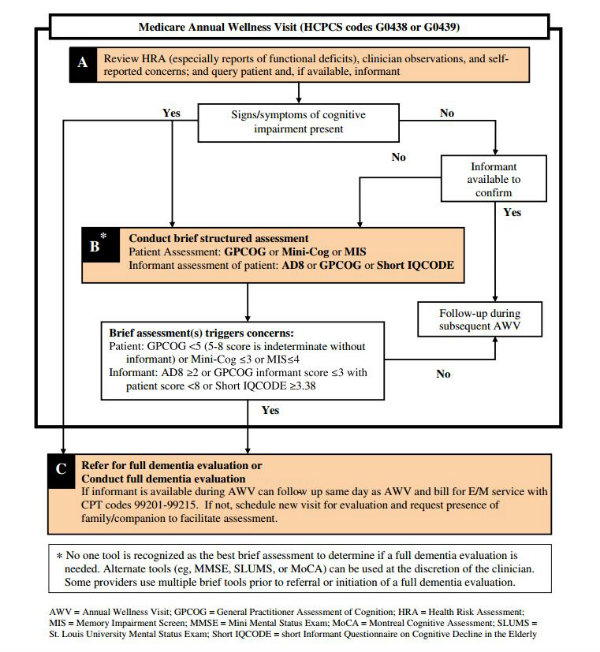 A workgroup convened by the Alzheimer's Association has come up with a useful tool to help clinicians detect cognitive impairment during the Medicare Annual Wellness Visit.
A workgroup convened by the Alzheimer's Association has come up with a useful tool to help clinicians detect cognitive impairment during the Medicare Annual Wellness Visit.
This is a great example of one of our new mottos at the John A. Hartford Foundation: “Putting geriatrics expertise to work.”
We’ve spent decades supporting the education, training, and development of experts in the care of older adults. Because of their work through the years, we know so much more about what good care should look like. Now, it’s time to put that knowledge into practice.
As we move forward with a new emphasis on practice change, we hope to take geriatrics principles to generalists and specialists through practical, real-world tools like the one developed by the Alzheimer’s Association workgroup
We’ve talked about the importance of the Annual Wellness Visit before, along with the lack of awareness about this important new Medicare benefit among older adults, and its slow uptake. Despite its underutilization, the Annual Wellness Visit gives patients and providers an important opportunity—and the time—to address topics such as cognitive status.
The workgroup that developed this new guidance for primary care clinicians included Hartford grantees David Reuben, Malaz Boustani, and Joe Verghese. They produced a simple, easy-to-use algorithm or flowchart to guide a provider through the process of assessing cognitive impairment. They also present easy access to evidence-based assessment instruments.
 In addition, the Alzheimer’s Association offers a listing of resources for patients and their families that providers can share. Prior to this publication, there has been no comprehensive guidance on how to assess for cognitive impairment in the primary care setting.
In addition, the Alzheimer’s Association offers a listing of resources for patients and their families that providers can share. Prior to this publication, there has been no comprehensive guidance on how to assess for cognitive impairment in the primary care setting.
We are thankful for the Alzheimer’s Association’s support for this work and we are happy to showcase this new resource. We hope that you will let us know about other tools that can put geriatrics expertise to work.
This is the fourth in an occasional series. See other Health AGEnda posts on Tools You Can Use:
Tools You Can Use: Preparing a Personal Advance Care Plan
Tools You Can Use: Guidelines for Assessing Patients Facing Surgery
Tools You Can Use: Principles for Treating Patients with Multiple Chronic Conditions
